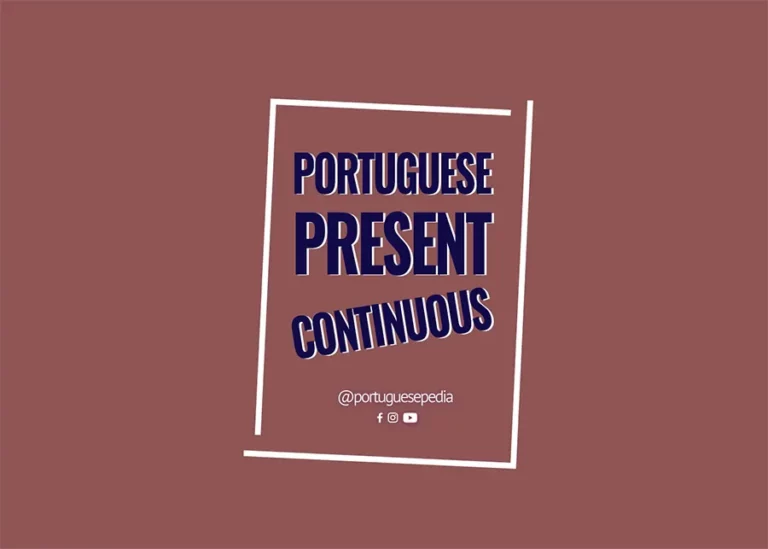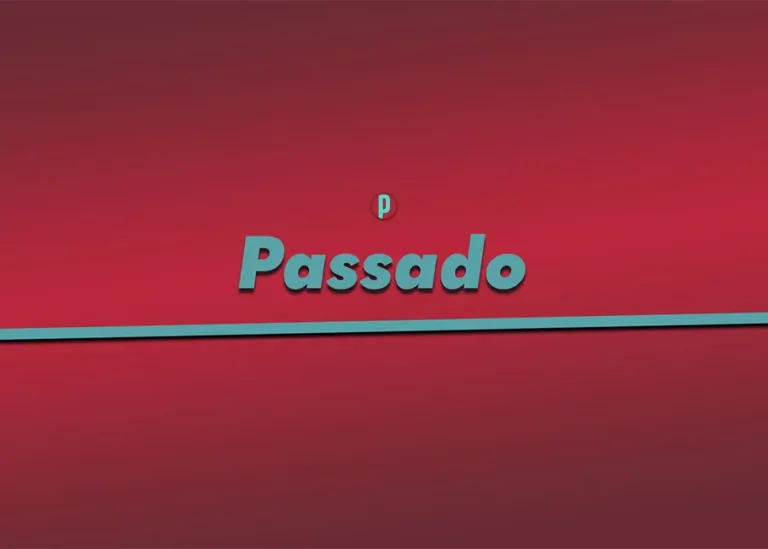
The Portuguese Verb Ficar – Conjugation and Usage
Ficar is a high-frequency and versatile Portuguese verb that every language learner should master as soon as possible. Depending on the context, Ficar may mean ‘stay’, ‘get’,…

Present Continuous in Portuguese
In Portuguese, as in English, we use the present continuous to talk about ongoing actions. Note, however, that the present continuous in the European and Brazilian standards look…

Portuguese Possessive Pronouns and Determiners
Portuguese possessive pronouns and determiners indicate possession. In English, these are words like my, your, his, her, our, their (possessive determiners) and mine, yours, his, hers, ours, theirs (possessive pronouns). Possessive pronouns and determiners…

Portuguese Past Tenses – Usage Rundown Anchored to English
In this article, we will take a look at the Portuguese equivalents of the English Past Simple, Past Continuous, and Past Perfect tenses. Past Simple Preterite –…

How to Master Portuguese Verb Conjugation
Portuguese verb conjugation can be daunting for language learners, no doubt. But with the right approach and consistent practice, you can most definitely overcome it. And believe…

Portuguese Grammar Features You Should Grasp as Soon as Possible
Introduction Understanding the fundamentals of Portuguese grammar can be extremely helpful. In this blog post, I’ll touch on a few relevant aspects of Portuguese grammar that you…

Poder vs. Conseguir in Portuguese – Tease Them Apart
Portuguese language learners often struggle to discern between Poder and Conseguir, not least native English speakers or anyone using English as a reference since Can usually encompasses…

Portuguese Verb Tenses and Moods Explained: A Usage Rundown Anchored to English
With so many conjugations, Portuguese verbs are a hard-to-chew bit for anyone learning the language, especially for those not acquainted with any Romance language from before. Now,…

Personal Infinitive in Portuguese (Infinitivo Pessoal)
The Personal Infinitive (Infinitivo Pessoal) is unique to Portuguese and commonplace. There’s no parallel in other languages and learners of Portuguese often struggle to wrap their heads…

Portuguese Irregular Verbs Students Need to Learn as Soon as Possible
Have you noticed that some of the most frequently used verbs in Portuguese happen to be irregular? These verbs are not only high-frequency but they also tend…

Portuguese Preposition ‘De’
The Portuguese preposition de is a preposition of origin and the Portuguese equivalent of from in English. Additionally, we use de to indicate possession, modify a noun,…

The Portuguese Verb Haver
If you’ve been learning Portuguese for a while, you’ve probably noticed that little word há popping up everywhere. Indeed, há is a verb form of Haver, which…

Portuguese Regular Verbs in the Past Tense
Let’s look at Portuguese regular verbs and conjugation patterns in the Past tense – both Preterite and Imperfect conjugations (aka Pretérito Perfeito and Pretérito Imperfeito). As you’ll…

Portuguese Gerund: Progressive Tenses and Beyond
The Portuguese Gerund (Gerúndio) is used to build Progressive tenses (such as the Present Continuous) and is the equivalent of the English Present Participle: the -ing verb…

Portuguese Question Words
Intrepid language learners start using Portuguese nearly from day one. I love the attitude and hope you are one of them. Besides bravery, to keep conversations going…

Forming the Plural in Portuguese
In Portuguese, not only nouns are spelled differently according to number (singular/plural), but also words belonging to other word classes such as adjectives, demonstratives, or possessive pronouns.…

Portuguese Past Subjunctive (Imperfeito do Conjuntivo)
The Subjunctive mood is often a source of much whining and moaning among Portuguese language learners – so many conjugations one must keep track of! We have…
